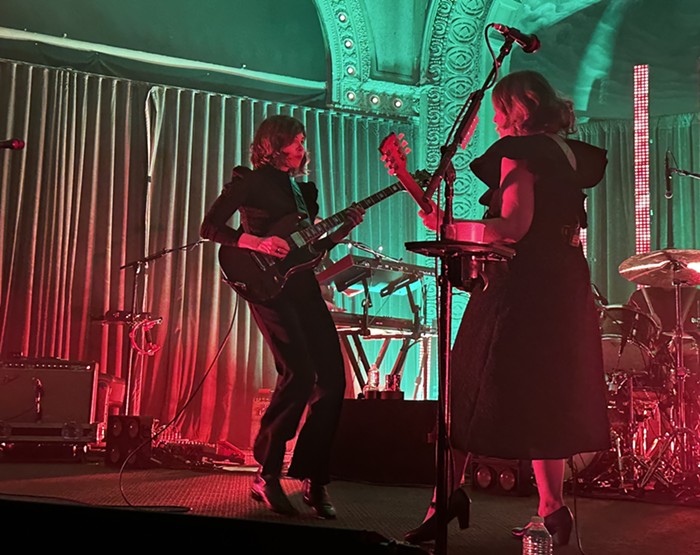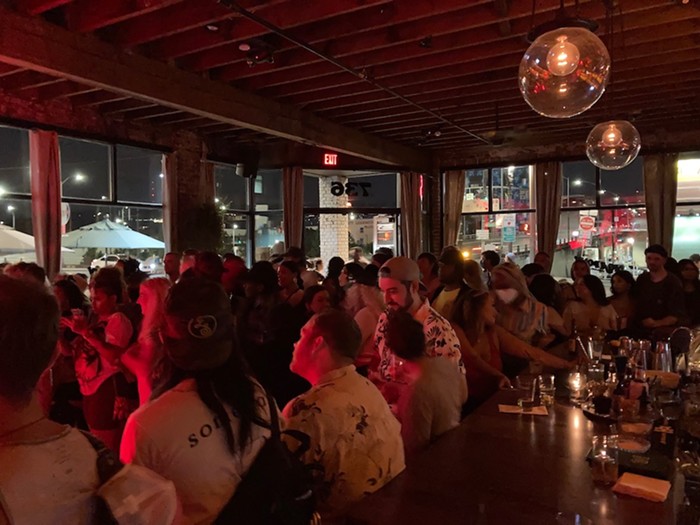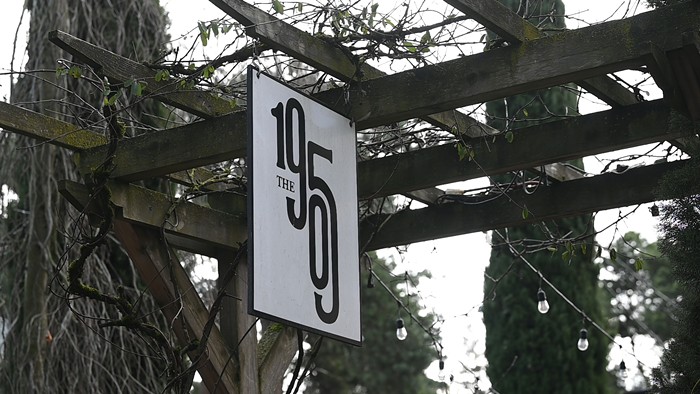IN THE LIMITED EXPERIENCE I've had with interviewing super-famous celebrities—in particular, movie stars, and in particular, ones in the middle of a press junket—they've had their side of the conversation down to a science. Their responses are ready almost before you finish asking; they have anecdotes to share, names of collaborators to rattle off. After all, that's a big part of their job: to perform take after take, whether in front of the camera or not—to say the same things over and over again.
But talking to Zooey Deschanel, in the middle of what is no doubt a long morning of back-to-back phone interviews, she doesn't give that impression at all. Her responses don't sound prepared; she doesn't sound like she's reciting lines. She says "like" and "um" just like the rest of us, and her answers seem thoughtful and genuine. She sounds interested in the conversation, or at least very good at pretending to be. In short, she seems totally normal, like someone you'd actually have a conversation with in real life.
For example, when I ask her about recording with her band She and Him in Portland, she shies away from making any pronouncements about the city's music scene, and instead mentions her family. "I've spent a lot of time in Portland because my grandparents live there, and my uncle lives there," she says. "I'm not like a 'scenester,' per se, but Portland's a great city and I love recording there."
Many of her collaborators in She and Him—M. Ward (playing the titular role of "Him") and Mike Coykendall (playing bass and engineer) among them—are based in Portland. The band's second album, Volume Two, continues the band's retro-flavored, lushly romantic pop beamed in from the ghosts of AM radio's past. Deschanel writes the songs on her own, usually keeping them to herself at the beginning.
"I might play a demo for somebody, but usually not. There aren't that many friends that I would play [for]... I would play stuff for my family. Mom, dad, stuff like that. But there are few people on the list that I would play a demo for. I wouldn't have any reason, exactly...."
Ward is often the first one to hear the demo. "Matt tells me which ones he likes and wants to produce, and we go up and record them with Mike," she explains. "I think it's very powerful to have a small group of people—two or three or four people—that like and trust each other. When you're working alone, sometimes it's like you second-guess yourself. Working with a small group, it's sort of ideal, because you have the checks and balances without having too many cooks in the kitchen... It can make it three-dimensional in a way that the person who wrote it could never do. I think it really adds dimension to allow other people to have power within that process—you know, people you trust. I like having someone else produce and engineer the records."
The pleasure of She and Him's music comes from its distinct echoes of pop music's past. Deschanel's songs, often deceptively simple, ring of a time when a pop song's value came from its very functionality—of being escapist and romantic and soothing, offering a quick little burst of transportive sensation.
"You know, really I'm not a songwriter to get rid of my, like, demons," Deschanel says. "I'm a songwriter because I like music, and I love writing melodies and the way that melodies interplay with chord progressions. That's fun for me. My theory, as far as what I aim to do with songs—and I have varying degrees of succeeding with this—but ultimately, my goal with writing a song is to distill an emotion or a concept or something powerful. It could be playing with some kind of a metaphor or with a story. But making it as concise as possible is my goal. Because I feel like that is the power of songwriting: You have something that's about three minutes long and it can stir up a lot in people, whereas a movie will take two hours to do that. But that short form, the more you can say in the least amount of words, that's the goal for me. I know other people have different ideas, but for me, that's the goal. In as few words as possible, say what you want to say.
"Because everyone has the same emotions, it's just that everyone feels them to varying degrees. And everyone has varying degrees of experience, but ultimately we all have the same emotions. Which is cool."



















